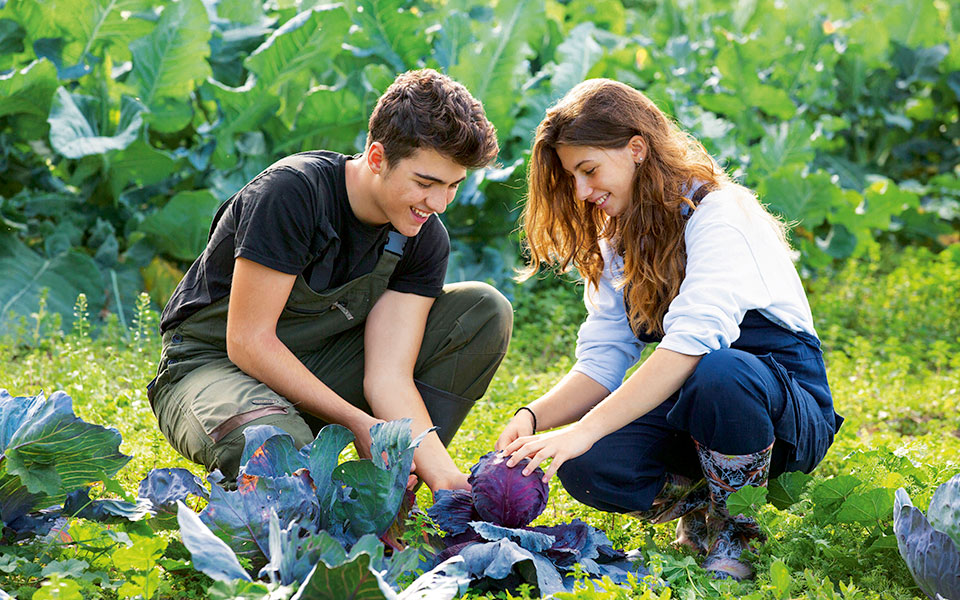At the heart of 350 acres of fertile land, just southeast of Thessaloniki, is the American Farm School (AFS) with one of the loveliest campuses you could hope to find anywhere. The school is a working farm – nearly a third of the total acreage is teeming with agricultural abundance, including olive groves, vineyards, field crops, orchards, gardens and greenhouses.
Contented hens roost in an immaculate coop, and the hatchery next door is a delight (a favorite with the many schoolchildren who visit the farm each year). Nearby, a gorgeous dairy herd of purebred Holsteins grazes in a lush pasture. It’s literally a land of milk and honey – there’s even an apiary (and a snail farm).
And it’s also a land of wine – Greek varieties such as Xinomavro, Agiorgitiko and Mavrodaphne are cultivated alongside international varieties like Syrah and Grenache Rouge in the vineyard (a gift from prominent former wine producer Yiannis Boutaris, now Thessaloniki’s mayor). At the Perrotis College Krinos Olive Center, innovative olive-planting systems are evaluated, olive oil is extracted, stored, processed and analyzed, and students learn how to taste olives and olive oils and assess their quality.
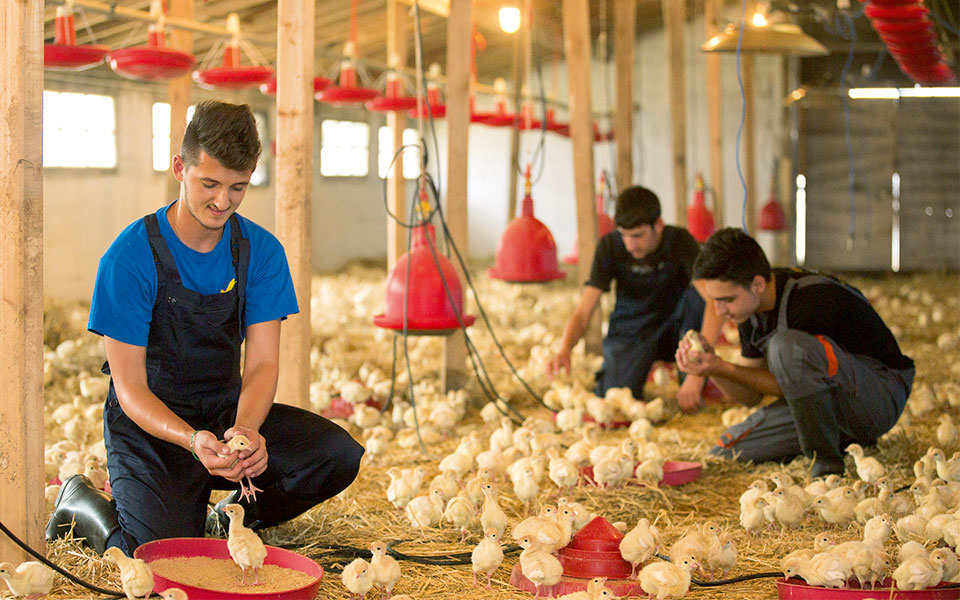
© Maria-Ioanna Xristoforidou, AFS Αrchive
This working farm provides experiential, hands-on learning. The dairy produces milk (AFS introduced Greece’s first pasteurized milk in 1935), yogurt and butter, and just a few months ago students began producing a semi-hard cheese.
The hens, fed on a diet of flax seed, lay omega-3 eggs (these were another first in Greece – celebrating their 20th anniversary this year). The milk and eggs are popular items available at select supermarkets in Thessaloniki and Athens. At the winery, students make a delicious Xinomavro, from the grape variety originating in the Peloponnese. They also produce retsina, the traditional resinated wine, in both white and rosé, plus a small amount of sweet wine from sun-dried grapes. Fragrant tsipouro (a strong spirit) is distilled from the grape marc.
The school’s own hard durum wheat, milk from the Holsteins, and those omega-3 eggs are combined to create traditional Greek pastas. Students also raise limited quantities of broilers and seasonal turkeys fed on flax seed and aromatic plants (the turkeys are prized centerpieces of many an expatriate Thanksgiving table), some legumes, rice, winter and summer vegetables, oil, honey, and even aromatics and fresh flowers.
The majority of AFS High School and Perrotis College students call the farm home. The products from the farm and from the trials they’re running (they’re always working on something new) supply the school dining hall that serves both residential and day students. The campus store sells the farm’s own products and its seasonal produce. Proceeds from the store support the school’s founding mission by helping to fund scholarships. Perrotis College students run the store, giving them hands-on experience in management and in retail.
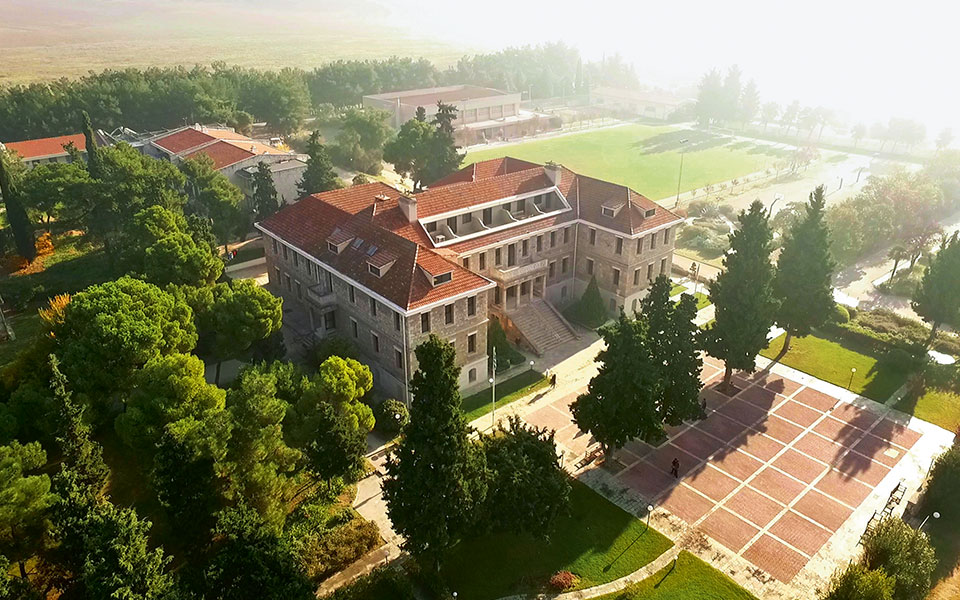
© Maria-Ioanna Xristoforidou, AFS Αrchive
HEAD, HANDS, AND HEART
The source of all this bounty began with 50 acres, purchased in 1902 by John Henry House and his wife Susan Adeline, both missionaries. They founded the Thessalonika Agricultural and Industrial Institute – soon to be known as the American Farm School – in 1904. It was incorporated in the State of New York as a charity (it’s still a private, not-for-profit organization registered in the State of New York) with the aim of giving the local population the skills needed to be successful at farming.
Known as a practical idealist, Dr. House’s mission to educate “the whole individual – the head, the hands, the heart” inspired supporters in the United States, who donated equipment and funds. This helped keep the school afloat during an era of turmoil in the Balkans – boys orphaned during uprisings in the Ottoman era’s waning years found a home and education here. These first students learned firsthand about agriculture, livestock management and viticulture on the school’s lands, and they also acquired other vital skills like masonry, carpentry and blacksmithing, all skills needed for the overall development of Greece.
Dr. House’s mission to educate “the whole individual – the head, the hands, the heart” inspired supporters in the United States, who donated equipment and funds.
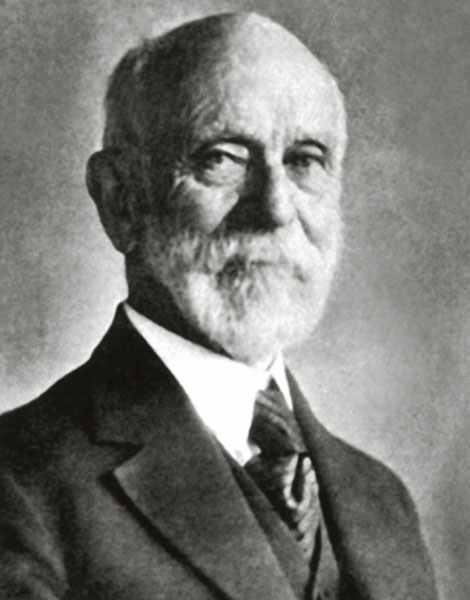
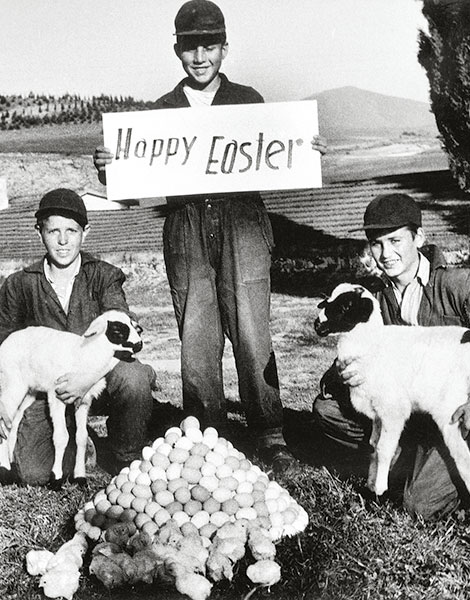
A significant phase for the school was the tenure of Bruce Lansdale, an American philhellene, engineer and teacher who led the school for nearly 35 years, beginning in 1955. This period saw the expansion of the school’s mission to the greater community. AFS began offering technical advice and short courses for local farmers, as well as “training for trainers” programs for international groups.
Dr. Panos Kanellis, the first Greek president of the AFS and Perrotis College, was appointed in 2010. This was a turning point for the institution, as he saw its potential through a new perspective – one that revived the school. A native of Thessaloniki and graduate of Anatolia College, he earned a PhD in Bio-Organic Chemistry in the United States. After years of teaching and research, he returned to Greece, holding managerial positions in the private sector before taking up the twin roles of Executive Vice President and COO at his alma mater Anatolia, where he worked until 2009.

© Maria-Ioanna Xristoforidou, AFS Αrchive
While respecting the long and important history of the American Farm School Dr. Kanellis developed educational programs that reflect the changing needs of this generation. New initiatives under his direction include the preschool and primary school, the Center for Agricultural Entrepreneurship, which helps participants turn innovative ideas into sustainable businesses, the School of Professional Education, the Perrotis College School of Graduate Studies which offers Master of Science degrees, and the Perrotis College Krinos Olive Center.
Dr. Kanellis guided the school into a new era, where practical training meets scientific knowledge; experiential learning develops problem solving skills and entrepreneurial thinking leads to new opportunities.
Perrotis College was introduced to the campus in 1995 as a vocational school named after Mrs. Aliki Perroti’s late husband, Dimitris Perrotis. Mrs Perroti, who had witnessed great hardship as a child in Athens, was inspired to share her good fortune on a larger scale when she had the means to do so – her gift represented the largest donation ever given to an institution of higher learning in Greece.
The buildings themselves are inspiring; featuring sustainable design principals and minimizing the energy footprint, these additions to the campus are true to the institution’s ideals. At Perrotis College, students can pursue degrees in Agriculture and in Environmental and Life Sciences (through the Cardiff Metropolitan University) and this fall saw the introduction of MSc programs at the School of Graduate Studies in areas of concentration related to Agricultural Science (and to Marketing for the Agrofood sector).
The acreage is burgeoning with agricultural abundance – olive groves and vineyards, field crops and orchards, gardens and greenhouses.
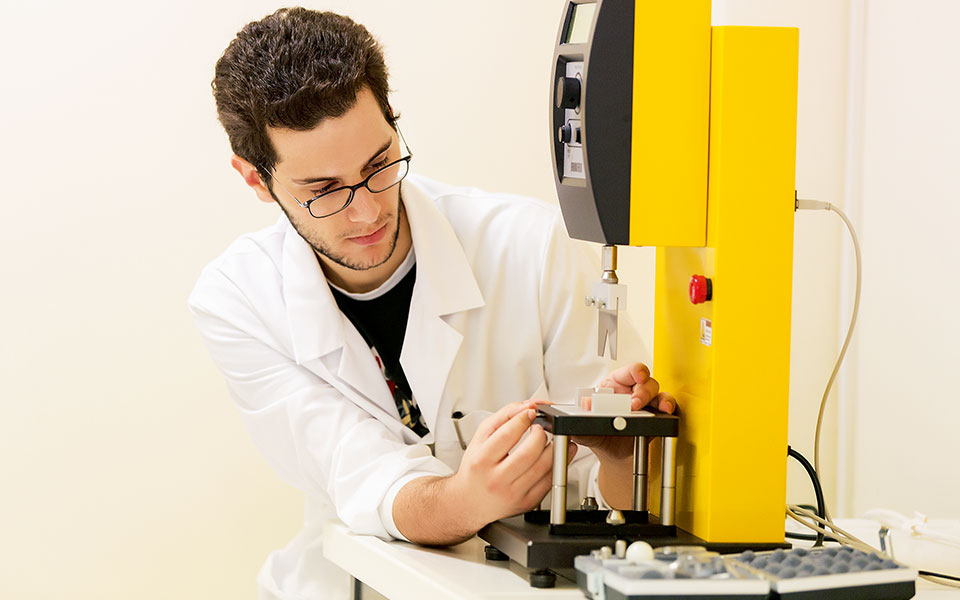
© Maria-Ioanna Xristoforidou, AFS Αrchive
At the high school, the STEAM (Science, Technology, Engineering, Agriculture, Mathematics) core curriculum provides a solid academic foundation for future studies. The AFS has an extensive recruitment program, visiting schools and communities all over Greece, and offers scholarships and financial aid packages. High school students participate in summer internships at affiliated universities in the US, and many of the students go on to US colleges, the immersive education and the experience of on-campus living giving them the maturity to make the most of their continued education.
The opportunity for study abroad benefits their families and their communities: they go on to take their family farms and agribusinesses to the next level, become entrepreneurs in the agricultural sector or professors of agriculture, educating the next generation.
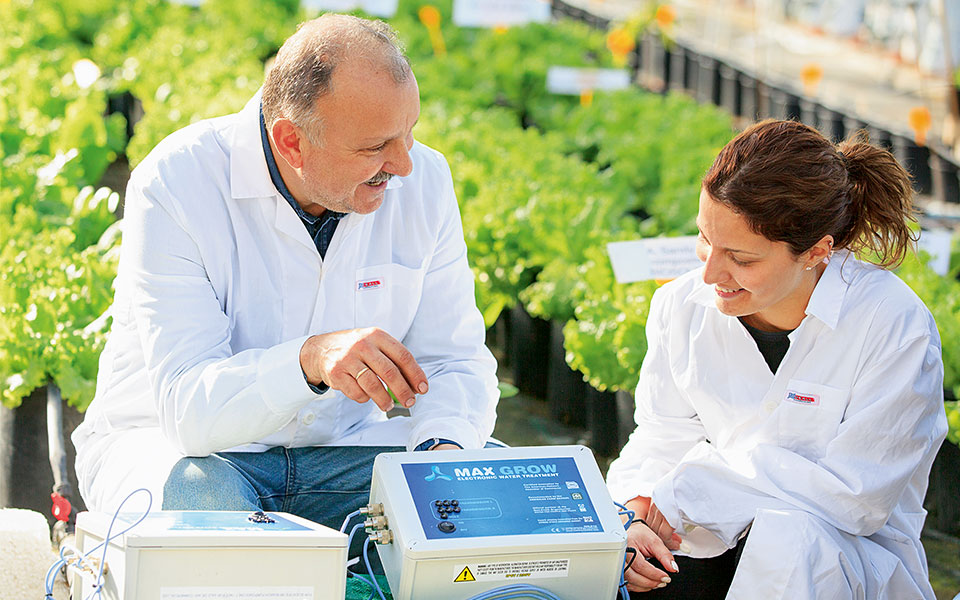
© Maria-Ioanna Xristoforidou, AFS Αrchive
The words that conclude the school’s mission statement are put into practice every day, as the school helps to build sustainable communities in the region. The School of Professional Education brings the work of AFS to the larger community of farmers and businesses, and 1,200 participants a year on campus or out in the field reap the benefits.
Dr. Vergos, Dean of the School of Professional Education, illustrates the school’s commitment to building sustainable communities with examples from throughout the school’s history: “When the refugees of Asia Minor came in the 1920s, AFS gave them crash courses in the skills they would need to survive as farmers before they were given land by the Greek state. There was a similar set up during the Marshall Plan, with AFS educating farmers receiving assistance. Rather than getting a certificate on completion of the program, participants received either a mule (brought over from Arizona or New Mexico), or a pair of chickens and a rooster to give them a good start.”
Today, AFS is reaching out to a new group of refugees. With funding from the US Embassy, AFS faculty and students will be helping refugees acquire skills in agri-production. “We don’t do just theory here,” says Dr. Vergos. “We combine theory with practice – everything is experiential.” This means building greenhouses and starting gardens at refugee camps, serving an immediate need by enabling refugees to become more self-sufficient and to preserve their culture by growing the foods that are part of their cuisines.
The longer term goal is formal certification in agricultural skills, making it easier for refugees to find work when they reach the countries where they will ultimately settle, or better still, arming them with knowledge to take back with them to their home countries when such a return becomes possible. The benefit to faculty and students is that they are actually out in the field, facing real-life circumstances.
“We don’t do just theory here,” says Dr. Vergos, Dean of the School of Professional Education. “We combine theory with practice. Everything is experiential.”
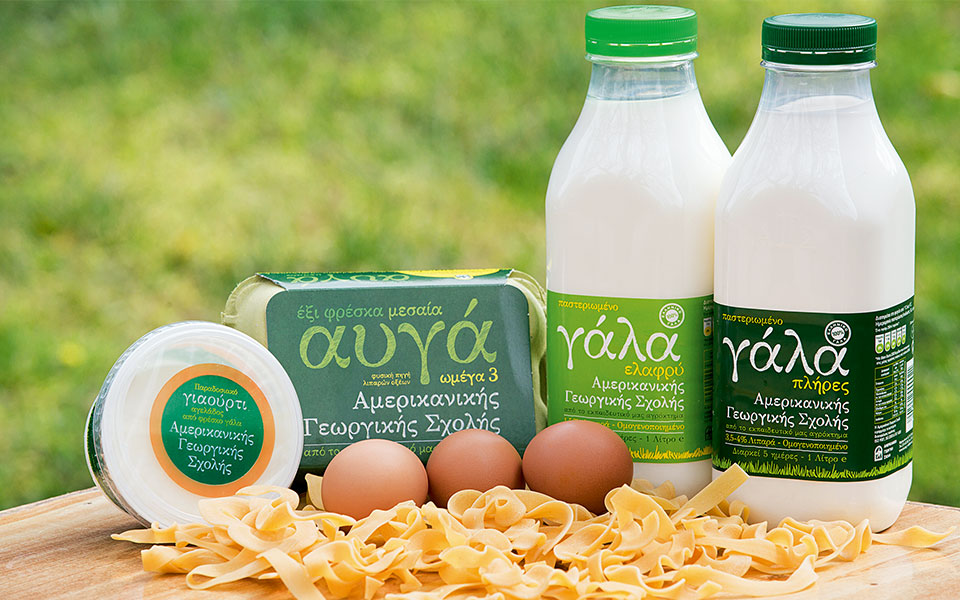
© Maria-Ioanna Xristoforidou, AFS Αrchive
The school’s mission leads to inspiring cooperative efforts. In collaboration with Rutgers University and the Agricultural University of Athens, AFS is participating in “New Agriculture for a New Generation,” a project funded by the Stavros Niarchos Foundation as part of the Foundation’s “Recharging the Youth” initiative.
“Education Unites: from Camp to Campus” is another collaborative effort that includes the United States Embassy, Perrotis College, AFS, the American College of Thessaloniki, Anatolia College and Deree – the American College of Greece. This initiative will provide scholarships for higher education to 100 refuges in Athens and another 100 refugees in Thessaloniki.
At the heart of all this stand the school’s founding values: supporting humanity and making Greece and its neighboring countries better places. Dr. Vergos sums up the spirit of the place: “Agriculture is culture. It’s not just technocratic; instead, it’s intrinsically related to human values – zeal, discipline and ethos.”

